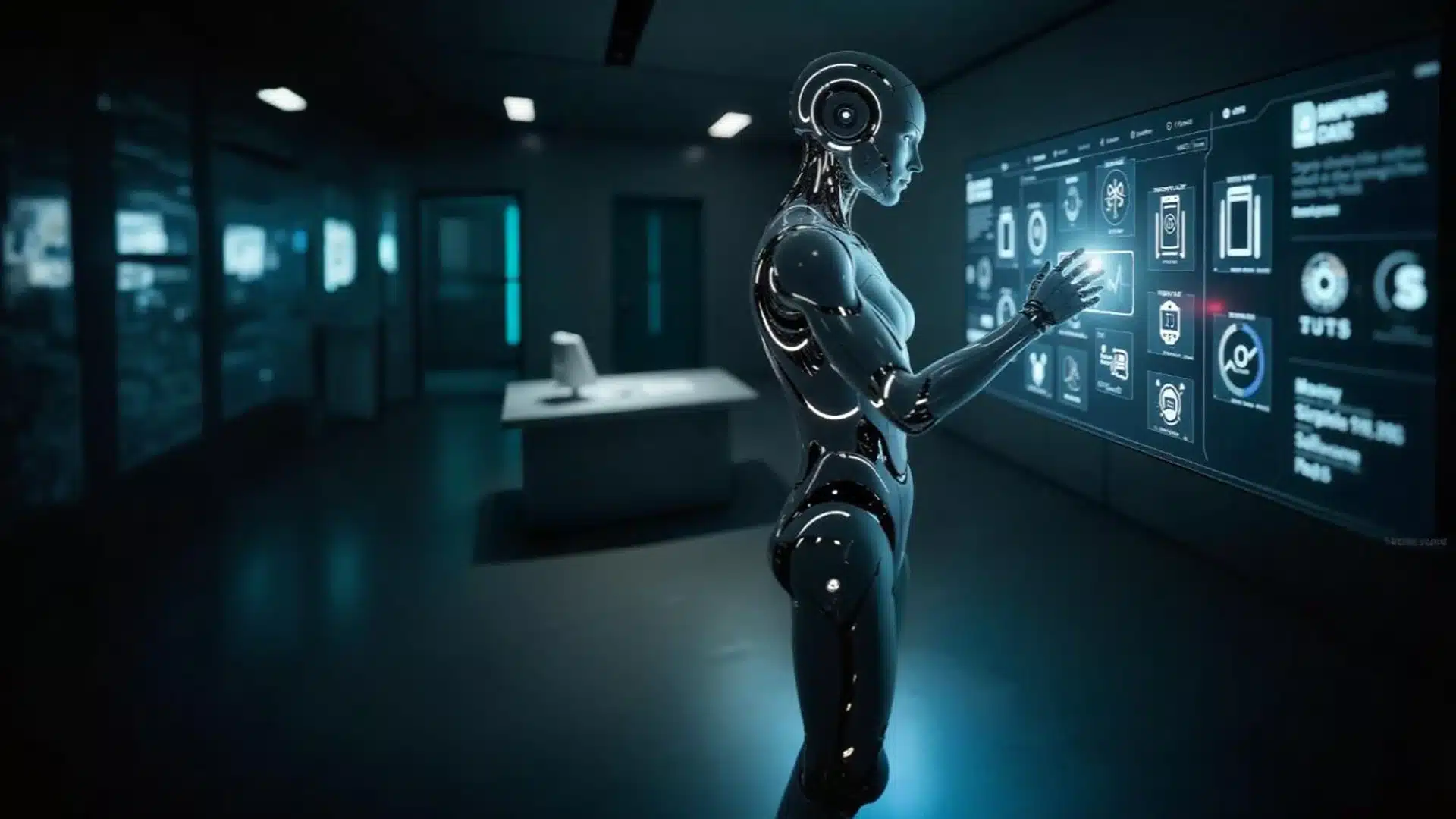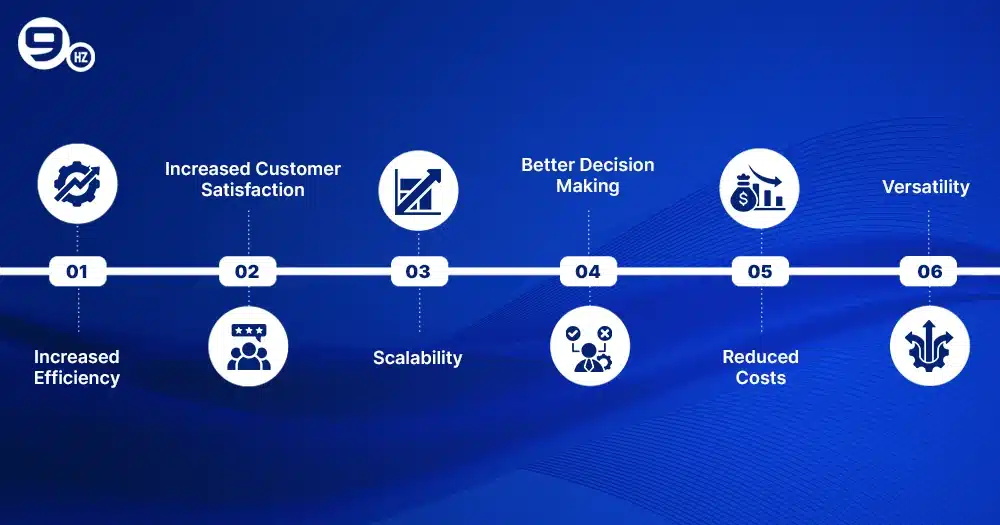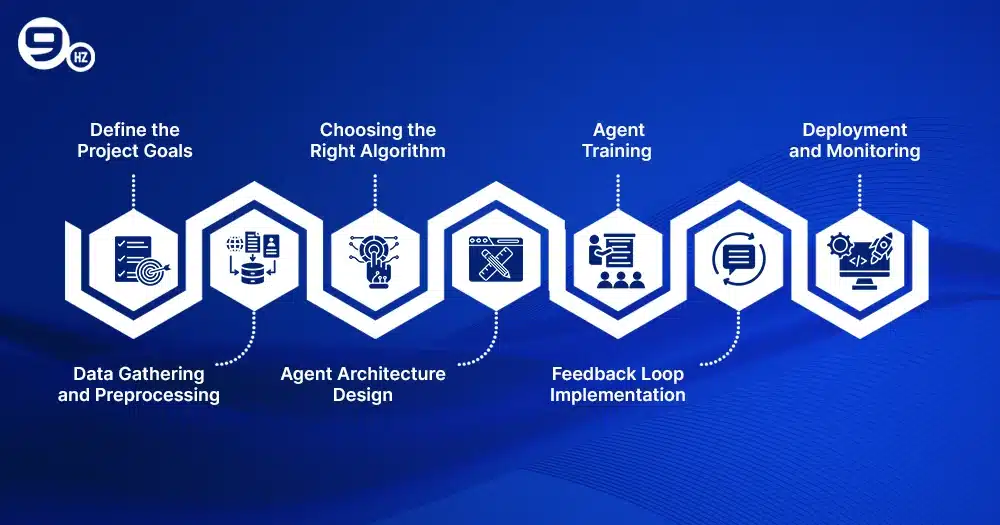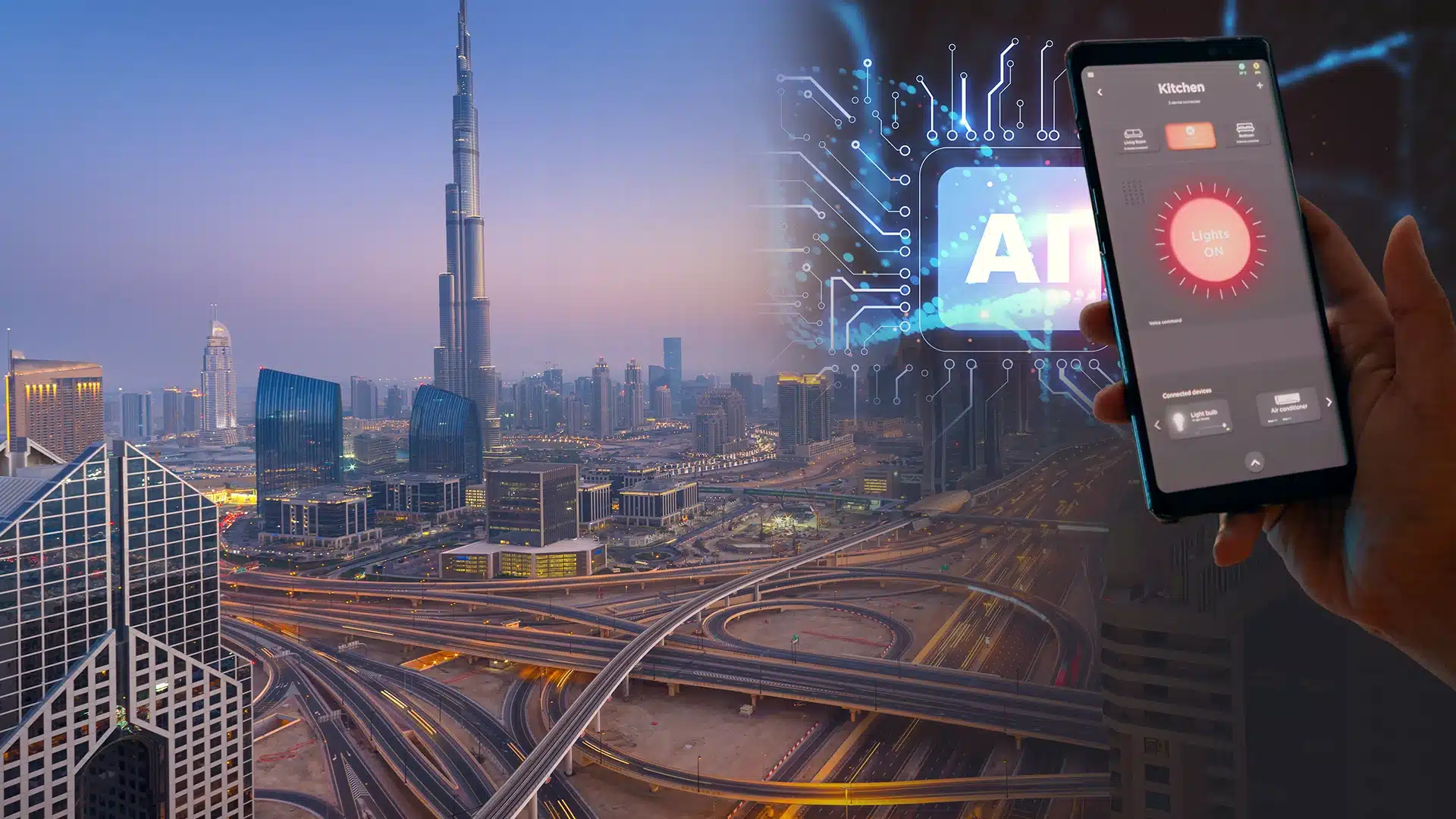Web development, app development, generative AI, and AI agents have transformed businesses in their way. But advancements never took a pause, and now it is revealing a new technology called Agentic AI. This is a more advanced and powerful concept as compared to all the other technologies that we have witnessed till now. The agentic AI market has been valued at $5.1 billion in 2025 which is all set to increase by $47 billion by 2030.
As a leading Agentic AI development company, we help businesses to be early adopters of this innovative and advanced technology to automate their tasks, bring efficiency, and leverage a competitive edge in the market. However, building an agentic AI solution is not as easy as there are very few experts in the market who can help with this novel concept.
So, we have curated this article that will guide you all about how to build agentic AI, how does agentic AI works (the main components), the development costs, and much more.
Why Build an Agentic AI Solution?
Before jumping to the development process, it is important to understand the benefits of agentic AI that encourages businesses to invest their resources in this marvellous technology. Other than the basic advantages like competitive edge and automation, there are several other advantages associated with the use of agentic AI.
1. Increased Efficiency
Agentic AI solutions are designed to brainstorm and perform tasks faster while compromising the quality and accuracy. A lot of tasks like data entry, IT system updates management, resource optimization, task prioritization, and customer support can be performed without human intervention while maintaining accuracy.
2. Increased Customer Satisfaction
Customers are the most important stakeholders for a business. Agentic AI helps to provide a personalized customer experience and 24*7 customer support. Whether it is suggesting the right product/service, guiding them for the use cases, processing refunds, or attending the queries or feedback, agentic AI is capable of everything.
3. Scalability
Scalability is a big difference when talking about Agentic AI vs AI Agent. While AI agents require frequent human interference to provide the updates and scale according to business needs, agentic AI has the capability of autonomous learning from experiences and user interactions. So, it doesn’t need the frequent and manual updates.
4. Better Decision Making
Unlike the traditional AI services, agentic AI is capable of making decisions and executing tasks. At the same time, this smart technology focuses on achieving the predefined goals without undertaking any action that causes ethical or operational issues. Based on the data, it makes the best decision according to the interests of business management.
5. Reduced Costs
The key capabilities, like process automation and resource optimization, help businesses to save a lot of costs in the long term. All the repetitive and least productive tasks can be automated while increasing efficiency and eliminating the chances of human errors. Human resources can be used for more productive tasks, which leads to sustainable growth.
6. Versatility
Agentic AI solutions are highly versatile as they perform with the same efficiency in different industries, niches, departments, and processes. Shifting the solution from one environment to another is also not as complex as it grabs the information quickly to perform tasks with efficiency.
Contact us today to explore how agentic AI can streamline your processes and drive growth.
Request A Free Quote
Key Components/Building Blocks of Agentic AI
Agentic AI development mainly consists of the 6 building blocks, which also serve as the core component of the agentic AI architecture. Understanding of these key components ensures that you make an agentic AI solution according to your particular business needs.
1. Perception Module
This is the foremost building block of agentic AI architecture that helps to store the data from different sources. It consists of sensor integration, data processing, and feature extraction that helps to gather information, analyze data, and forward it for informed decision making.
2. Cognitive Module
This part is referred to as the brain of an agentic AI solution that helps to make decisions based on the collected data. This part consists of different tasks like decision making, goal representation, reasoning, and problem solving.
3. Action Module
As the name suggests, the action module is responsible for taking action according to processed data and defined goals. Task automation, device control, and execution monitoring are the main parts of the action module that helps to get tasks done quickly and accurately.
4. Learning Module
Learning module makes sure that an agentic AI solution gets better over time by learning from the experiences and interactions. It includes reinforcement learning, historical analysis, and continuous optimization that helps the system to get smarter by adapting to new challenges.
5. Collaboration Module
Agentic AI needs to collaborate with several systems in order to execute a particular task. So, the collaboration model helps with system integration and user interactions that allows the smooth teamwork with AI, external systems, and human users.
6. Security Module
The security module is designed to ensure that all the data used for agentic AI development is safe. At the same time, it also helps to identify the threats and take informed decisions to prevent any kind of damage. It consists of technologies like threat detection and data encryption.
How to Build Agentic AI from Scratch: Step-by-Step Process
Having an understanding about the agentic AI development process can help the businesses to choose the right development partner and ensure that the right development approach is being deployed during the project. While the exact course of action might differ from one developer to another, the overall approach is always mutual.
1. Define the Project Goals
First of all, you must have clear goals for agentic AI development that outline your vision for the project and what you want to achieve by the end of the development process. You must have an idea of the process, task, or entire operations that you aim to automate by building an agentic AI solution. It helps to curate a personalized roadmap and impart the required features that can execute the actions according to the predefined scope.
2. Data Gathering and Preprocessing
Agentic AI is thoroughly based on data. So, the development team relies on the different data sources to collect high-quality information for the model training of agentic AI solutions. At the same time, it is also ensured that only high-quality data is used for the training of agentic AI solutions, as biased data will produce biased results. So, preprocessing of data is carried out, that includes several practices to clean, structure, and label the data.
3. Choosing the Right Algorithm
We have to choose the right algorithm according to our particular use cases that can help in perception and reasoning. At the same time, the choice of model and architecture also depends on the complexity level of the project and the final goals that have to be attained. Here are three algorithms that can be deployed-
- Deep Learning- When agentic AI is designed for the tasks which includes image recognition and natural language processing, deep learning algorithm is the ideal option.
- Reinforcement Learning- This is the algorithm that helps the agentic AI solution to make accurate decisions in a dynamic environment without compromising the ethical considerations.
- Bayesian Network- When you make an agentic AI solution, Bayesian Network helps in probabilistic reasoning that helps to handle uncertain knowledge by assigning likelihoods of the event.
4. Agent Architecture Design
As the name suggests, the fourth stage is entirely dedicated to designing the technological architecture of an agentic AI solution. It consists of building a modular framework where the different components, like perception, reasoning, memory, and actions, can interact with each other seamlessly. Different technologies and architectures, like OpenAI Gym or Unity ML-Agents, are used for the agent architecture design.
5. Agent Training
Agent training consists of feeding the collected knowledge and data to an agentic AI solution to prepare it for providing the outputs and executing the tasks. Different types of training and learning are used to train the agent. At the same time, different simulations and real-time data are also used for agent training so that it can perform adequately according to various scenarios. Here are different types of learning that are incorporated-
- Supervised Learning- This is used to train AI systems with well-structured and labeled data. Supervised learning helps to create agentic AI solutions that can learn from input-output pairs to predict the accurate outcomes.
- Unsupervised Learning- This learning technique enables the agentic AI system to find hidden patterns without labeled data. It is designed for clustering, dimensionality reduction, and anomaly detection.
- Hybrid Model- The Hybrid Model combines both of the above learning techniques, that makes agantic AI solution capable of handling more complex tasks. This model is useful when there is a need for a multi-faceted approach.
6. Feedback Loop Implementation
The core competency of an agentic AI solution is that it can learn automatically from its past actions and user interactions. So, a feedback mechanism is integrated into the solution that can help agentic AI to learn from the business case studies which can lead to better decision making in the future. The mechanism also plays a significant role in helping the system to refine its decision-making capabilities over time.
7. Deployment and Monitoring
The last phase is the deployment of the agentic AI solution on the respective platform and intended environment, which helps the stakeholders to leverage its benefits and use cases. However, continuous monitoring is ensured to track the performance of the agentic AI solution over time, identify bugs or errors, and make the required improvements. At the same time, periodic updates are also provided to the system, which aligns it to the changing business and user needs.
Key Competencies To Ensure During Agentic AI Development
When planning to build an agentic AI solution, it is important to incorporate the features wisely. The reason behind the statement is that the number and types of features determine both the cost and success of the software. For example, incorporating unnecessary features will increase your agentic AI development cost while contributing nothing to the overall usability. So, here are some of the features that you must integrate during agentic AI development-
1. Autonomy
Agentic AI solutions are designed for various operations and processes. Thus, it must have the capability of automating the tasks that reduce the dependency on manual intervention from the human users. At the same time, autonomy also helps the agentic AI solution to work independently.
2. Goal Orientation
An agentic AI solution must be designed in a goal-oriented mechanism. It allows the digital product to identify the ultimate goal of the process and make decisions. However, it has to be ensured that the entire process of achieving the particular goals doesn’t consist of any unethical practices.
3. Adaptability
This core competency is integrated into the solution while making an agentic AI application. It allows the system to adapt and learn from experience and user interaction. Thus, the quality of output provided by the solution enhances with time.
4. Context-Awareness
When developing agentic AI for a particular industry or operations, context-awareness must be ensured. It gives the solution an idea about basic working mechanisms, hierarchy, rules, and expectations of the users to operate accordingly.
5. Reasoning
This is the main competency that makes agentic AI solutions much advanced as compared to other AI products. Reasoning capability provides the power to analyze situations, make informed decisions, and evaluate options without any human support.
6. Problem Solving
Agentic AI systems must carry the problem solving capabilities to critically analyze the situation and take the right approach for solution. It includes the four step approach consisting of perceiving, reasoning, action, and learning.
7. Multi-agent Collaboration
Agentic AI requires the collaboration of multiple individual agents. Thus, it is important that a collaborative environment is established by the developers where different agents can seamlessly interact with each other to execute the action.
Challenges of Building an AI Agent
There is no doubt that building an agentic AI is a very challenging and complex task. Thus, you must partner with the right agentic AI development company that can understand the real-time needs and frame the mitigation strategies to maintain the quality of software at all phases. Let’s have a glance at some of the common challenges that arise when developing an Agentic AI solution-
1. Highly Complex
As we interpreted in the earlier section, it is a very complex task to build an agentic AI solution. It requires consistent communication and coordination between the multiple agents with a constant need of constant data transfer. So, it becomes very complex to keep things organized.
Solutions:
We break the entire project into multiple smaller parts, which makes the overall development process easy to manage. Thus, our team of agentic AI developers can better focus on establishing the collaboration between agents.
2. Ethical Concern
Irrespective of the AI solution that you want to build, ethical concerns have always been associated with the development and use of this technology. For example, if an agentic AI solution is not efficiently trained, it can provide biased outputs that affect the reliability of users. At the same time, transparency is another vital concern that most users face while using AI systems.
Solutions:
The NineHertz relies on the different and representative data sets that minimize the chances of biasness. At the same time, we fine tune the collected data before feeding it to the system. Regular audits and updates are also a part of our mitigation strategies.
3. Data Security
Agentic AI requires a huge amount of data for training so that it can perform the desired tasks. Thus, there are always concerns regarding privacy and security of data when implementing an AI-based solution in businesses. At the same time, cyber threats are another challenge for developers to tackle when they develop an agentic AI system.
Solutions
Our team ensures to encrypt data during the transmission and storage process. Further, we conduct periodic security audits that promise a secure environment for the use of agentic AI tools.
4. Resource Intensive Development
The fact can not be denied that agentic AI development is a resource intensive task that requires huge computational power along with a lot of financial investment and highly-specialized experts. The challenge makes it difficult for the mid and small sized businesses to automate their processes.
Solutions:
The NineHertz is committed to making agentic AI accessible to all businesses. So, we use cloud solutions that make agentic AI tools scalable. Also, we optimize the agentic AI model to make it versatile for multi-sized businesses. Edge computing methodology is deployed that reduce the overall load on the system to make the process budget-friendly.
5. Adaptability to Latest Technologies
AI is unleashing new capabilities everyday and thus the system that we build today might be outdated after some time. So, it is a big challenge for developers to build agentic AI solutions that can align with changing business needs while showcasing the advanced capabilities over time.
Solutions:
The NineHertz offers periodic maintenance and support services, in which we provide timely updates to the software by integrating the latest technologies. At the same time, we also built a flexible framework that can evolve to adapt to the changing environment.
The Cost to Build Agentic AI Solution
Building an agentic AI solution requires the initial investment that can bring a significant ROI by automating tasks, enhancing accuracy, and establishing better resource optimization. Talking about the cost to build an agentic AI solution, it can range anywhere between $50,000 to $500,000. The reason behind the variable cost is that the pricing of an AI agentic solution is influenced by a range of factors. Any alteration in these factors highly changes the total development cost.
| Type of Agentic AI Solution | Basic Agentic AI | Intermediate Agentic AI | Advanced Agentic AI |
|---|---|---|---|
| Approximate Cost | $50,000- $100,000 | $100,000- $250,000 | $250,000- $500,000 |
| Functionalities | These are the agents designed for limited tasks. Technologies like machine learning and advanced decision making are often missing from this type of solution. It can perform tasks like data entry and basic customer interaction. | These are advanced solutions that come with machine learning and NLP capabilities. It can perform complex tasks like product recommendations, virtual assistance, and fraud detection. Intermediate solutions are designed to perform tasks with moderate complexity. | Advanced solutions are equipped with deep learning, real-time learning, and machine learning capabilities. It can handle highly complex tasks like big data analysis, autonomous vehicle controls, and advanced voice assistants. |
Factors Affecting Agentic AI Development Costs
1. Project Complexity
As displayed in the above section, development costs increase according to the complexity of an agentic AI system. For example, simple AI solutions like a chatbot that only has to answer predefined questions can be developed with a few thousand dollars. On the other hand, advanced solutions that can automate complex processes without human intervention require a huge investment.
2. Customization
The more customization, the higher the development cost. The reason behind this mechanism is that customization requires high specialization, more time, and increased human resources. At the same time, some of the customization even needs third-party integrations, which come at their costs. So, off-the-shelf AI solutions are automatically more affordable as compared to highly customized AI solutions.
3. Data Gathering and Sources
An AI solution requires huge data for training so that it can perform the particular tasks. Different sources can be used to collect the data. Moreover, it also requires fine-tuning the data before training so that the chances of bias can be eliminated. If the data is already available within the organization, it can reduce the cost significantly. Similarly, if there is a need to purchase data from external sources, it adds-on the dollars to the overall bill.
4. Location of Development Team
The location of your agentic AI development partner plays a huge role in the project costs. For example, hiring a team from countries like USA, UK, Australia, and Europe will cost you more than twice as compared to hiring the agentic AI development company from India. The cost efficient technical resources available in India makes the overall project much affordable.
5. Integration Requirements
AI agents perform best when integrated with legacy systems and third-party systems. For example, integrating AI in the existing enterprise resource planning system will help the organization to better optimize its resources. However, the integration process is associated with different types of costs. If the existing system is outdated, it requires maintenance and upgradation. So, the integration process also contributes significantly to the overall agentic AI development cost.
6. Model Training and Testing
Agentic AI development is not limited to coding and programming, but it also includes training the AI model on huge amounts of data. At the same time, frequent testing sessions are also executed to ensure that the AI model is performing the tasks according to defined requirements. So, the higher is the training and testing needs, the more will be the development costs.
7. Maintenance and Updates
An agentic AI solution requires consistent monitoring and technical support. Any error or anomaly in the system must be actively identified and mitigated. Also, agentic AI needs periodic updates so that it can align with changing business needs. All this technical support also influences the development costs.
The NineHertz- Your Partner to Build an Agentic AI Solution
The efficiency and capability of your agentic AI solution are highly determined by the development company that you partner with. An experienced and well-versed agentic AI development company will make sure that you get the final software that aligns with your business’s needs. However, an inefficient development partner will not only waste your financial resources but will also waste a lot of time.
The NineHertz is a leading AI development company with 15+ years of experience. We have the best AI experts who specialize in building different types of advanced solutions like generative AI, automated chatbots, recommendation engines, AI agents, and agentic AI solutions. At the same time, we work closely with the dedicated industrial experts who help our developers to better understand the current challenges in the particular industry and thus design the software accordingly.
Our team provides free consultation services to businesses looking to implement AI in their operations. The consultation session focuses on analyzing project scope, providing result-driven recommendations, estimating resource requirements, along with a glance into overall cost and timeline. The NineHertz supports its clients from the beginning of the project to even after the deployment.
We provide the best maintenance and support services, which ensure that the final solution performs with its highest potential for a longer duration. Our maintenance services cover frequent bug fixing, adding new features, and periodic system updates.
The NineHertz is partnered with businesses of different sizes and thus we focus on providing cost efficient solutions. Our years of experience allows us to cut down the development cost without affecting the overall capabilities of the software.
Conclusion
Agentic AI has undoubtedly redefined the way businesses manage their processes and utilize their resources. However, to embrace the benefits, a full-fledged and well-managed development process is crucial. Agentic AI development processes consist of different phases like ideation, selection of an AI model, data gathering, fine-tuning of data, model training, testing, deployment, maintenance, and much more. At the same time, it requires a good investment to make agentic AI solution.
Thus, you must partner with the right Agentic AI development company that can understand your requirements and shape a high-performing solution accordingly. If you are also looking to automate your processes with an agentic AI solution, sign up for a free consultation with The NineHertz.
Frequently Asked Questions (FAQs)
1. How to build agentic AI from scratch?
Answer- Agentic AI development is a complex process that requires the experts’ guidance throughout the phases. Here are the key steps to build an agentic AI solution from scratch-
- Define the Project Goals
- Data Gathering and Preprocessing
- Choosing the Right Algorithm
- Agent Architecture Design
- Agent Training
- Feedback Loop Implementation
- Deployment and Monitoring
2. How much time does it generally take to build an agentic AI solution?
Answer- It generally takes 6-8 months to create an agentic AI solution. However, the exact timeline can significantly vary on the basis of different factors like project complexity, team size, integration needs, testing requirements, data volumes, and much more.
3. How much does it cost to build an agentic AI from scratch?
Answer- The cost to build agentic AI solution from scratch can range between $50,000- $500,000. The variation is caused by a range of factors, including but not limited to
- Project Complexity
- Customization
- Data Gathering and Sources
- Location of Development Team
- Integration Requirements
- Model Training and Testing
- Maintenance and Updates
Great Together!











